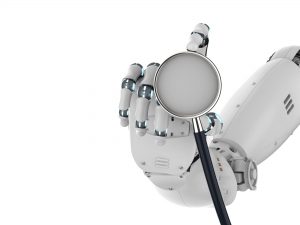As information transforms the business of healthcare, providers nationwide are recruiting trained health informatics (HI) professionals to manage and utilize data for the purpose of improving patient care. HI specialists with expertise in both healthcare and information technology (IT) are increasingly integral to the delivery and management of patient care in today’s complex healthcare industry.
If you’re wondering what it’s like to be part of this exciting, emerging occupation, read on to learn about what health informaticists do and what a typical day on the job entails.
Health Informatics is a Diverse Job
Health informatics professionals use their knowledge of healthcare, information systems, databases and information technology security to gather, store, interpret and manage the massive amount of data generated when care is provided to patients. They are typically well-versed in the language of medical coding, a classification system used throughout the U.S. to identify medical procedures.
In addition to the responsibilities listed above, health informatics professionals are typically responsible for:
- Analyzing data to help facilitate decisions and actions
- Developing data-driven solutions to improve patient health
- Collaborating with other departments in the healthcare system to reduce expenses through strategic data analysis
- Designing and implementing tools to measure data, patient care effectiveness and processes
- Facilitating the communication and translation of regulatory and IT requirements between departments
Health informatics professionals are also tasked with ensuring that patient health information, such as medical history, treatments and test results, are integrated, accessible, accurate and secure.
Utilizing communication skills is an everyday activity, as health informaticists meet and work closely with other healthcare professionals, such as RNs, physicians, respiratory therapists and physical therapists. They also interact with IT professionals to improve the way data is generated, analyzed and presented. The overall objective is to utilize data more effectively to improve the business and delivery of healthcare.
Healthcare Professionals are Transitioning to Health Informatics
Health informatics encompasses a wide set of healthcare information and data, from research to daily patient care. Professionals working in this field generally have a background in healthcare and are trained in information technology. Some start out in IT and receive training in medical coding and terminology. Many successful health informaticists have transitioned from careers as physicians and registered nurses, pharmacists and respiratory therapists who use their medical skills every day to effectively integrate electronic medical records with patient care.
HI Professionals Are Employed in a Variety of Healthcare Settings
As more healthcare providers transition to federally mandated electronic medical records, the demand for health informatics professionals is growing. Their job titles include clinical data analyst, health information resource manager, HI director and IT consultant. These healthcare professionals work in diverse settings, from hospitals and clinics, to surgical centers, government agencies and consulting firms.
However, regardless of the setting, health informatics professionals may speak directly with patients and family, gathering information in both clinical and non-clinical settings, depending on the individual facility, its systems and its staff’s needs. In hospitals, they are likely to deal with a wide range of medical issues and patient demographics while those who work in private practice, skilled nursing facilities or Hospice facilities typically deal with more specialized information.
An Exciting Job in Health Informatics
Solving healthcare challenges and improving patient care through health informatics is an exciting career path for anyone with a medical or IT background. Day-to-day responsibilities will vary according to the employer and position, but it’s clear that no two workdays are alike.
Perhaps the most exciting part of this occupation is what’s still to come. As technology and healthcare advance, the opportunities in health informatics will only continue to expand.
*National long-term projections may not reflect local and/or short-term economic or job conditions, and do not guarantee actual job growth. Information provided is not intended to represent a complete list of hiring companies or job titles, and program options do not guarantee career or salary outcomes. Students should conduct independent research for specific employment information.




